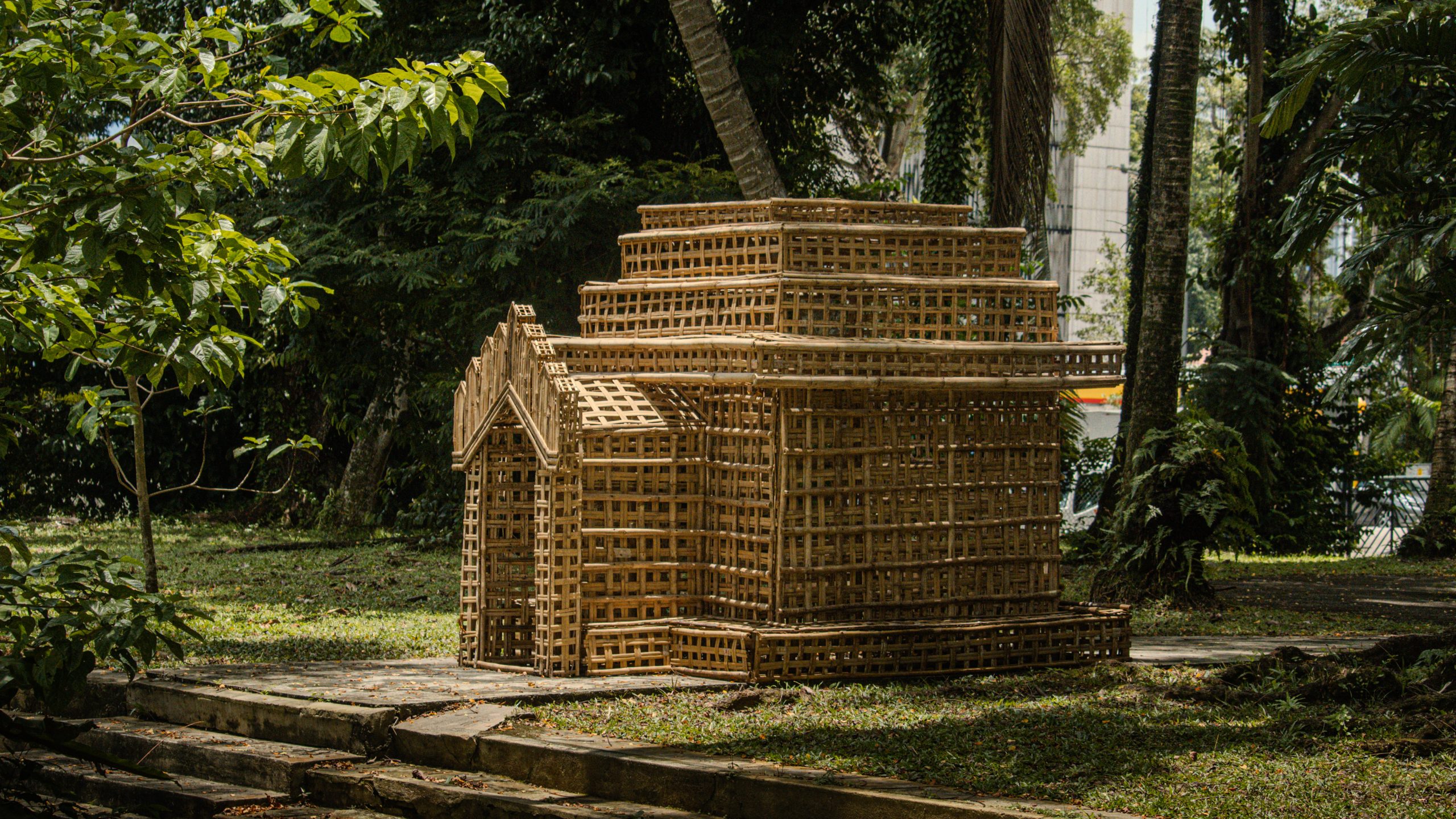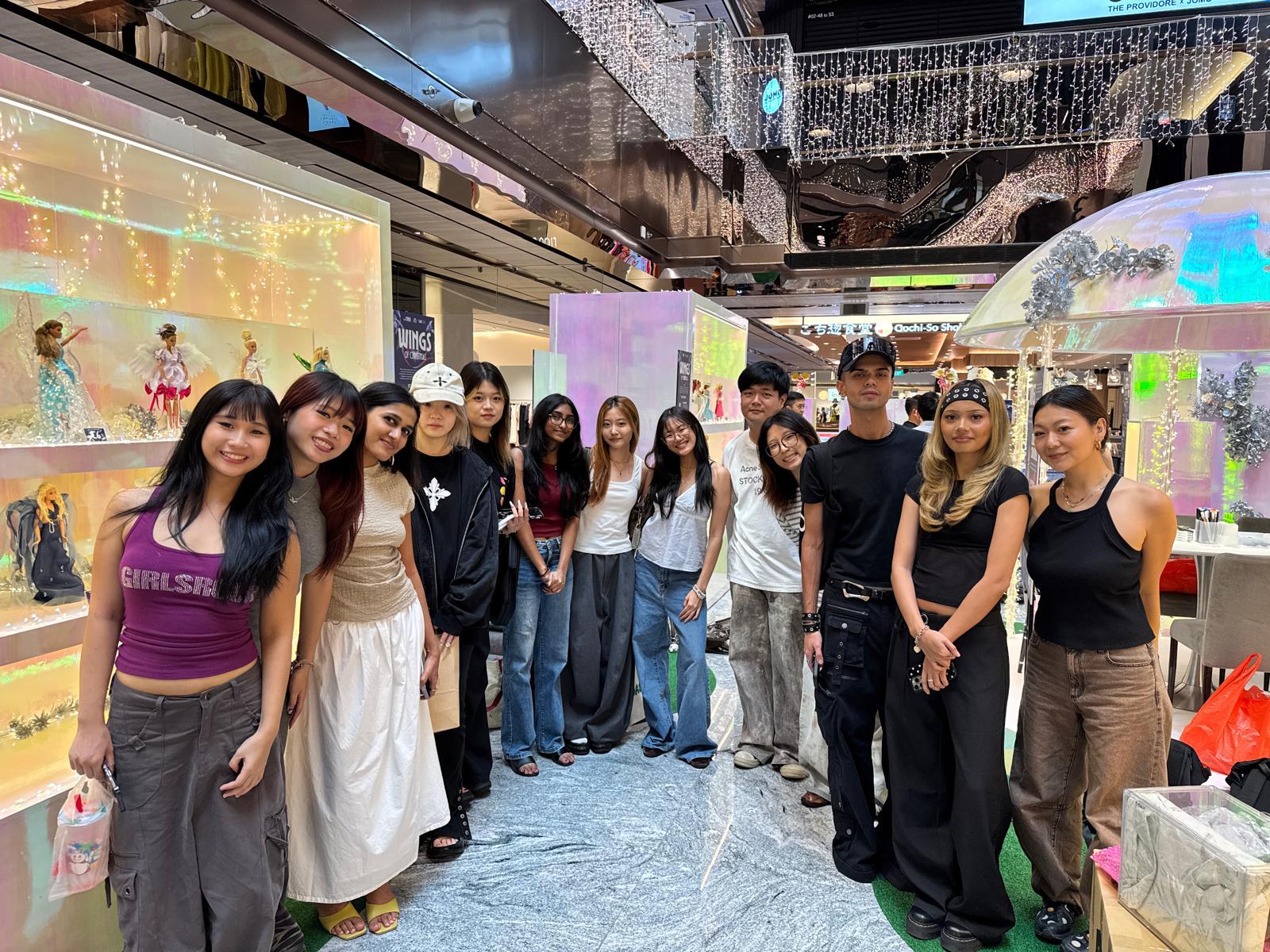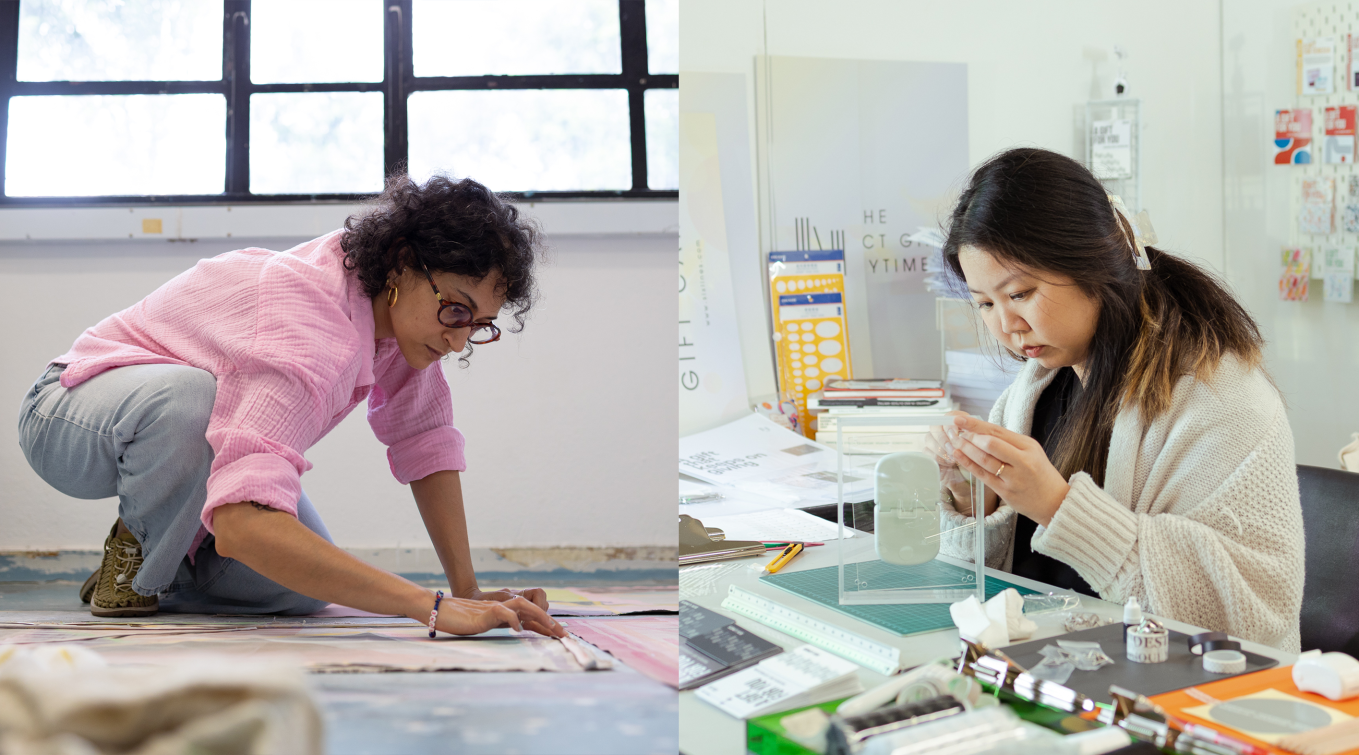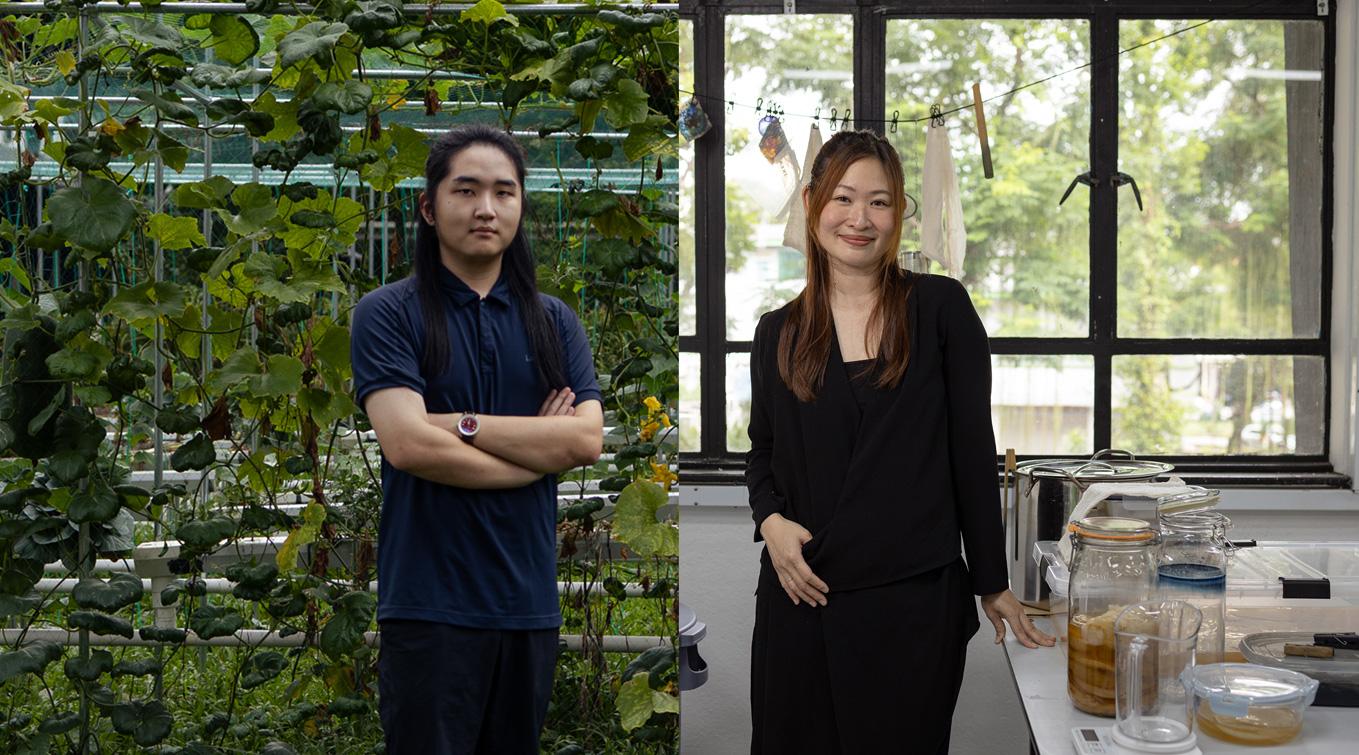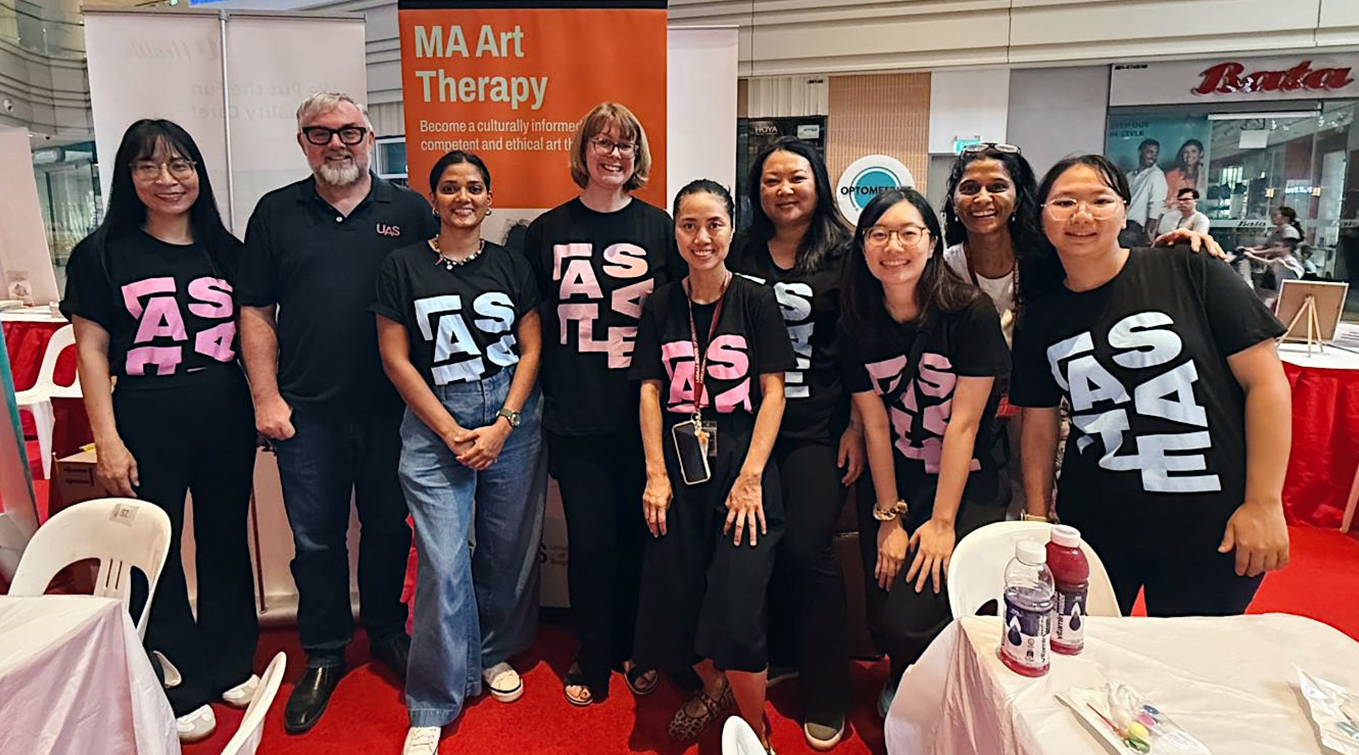In conversation with: Aswani Aswath on writing through uncertainty

Looking in from the outside, most success stories don’t start with failures. Aswani Aswath, a fresh graduate of the MA Creative Writing programme at LASALLE, tells a different tale.
“To be honest, my motivation to enrol in LASALLE came from a place of failure. My first play in Tamil had garnered some harsh feedback from industry practitioners. That led me to reflect on my skills and how I wanted to grow as a writer. Back then, I lacked the right vocabulary to think critically about my craft and relied solely on my gut and emotions,” Aswani shares.
“Some of us may have heard people say, ‘Anyone can write. You don’t have to study how to write.’ But if anyone can write, why does bad writing exist? Good writing exists, which means there must have been a process for someone to get to that place. I wanted to get there too.”
Today, the multi-hyphenate playwright, storyteller and educator creates new works for stage and screen in both English and Tamil, as well as collaborates with some of Singapore’s leading industry professionals. We sat down with Aswani for a chat on the ups and downs of her artistic journey.
Hi Aswani! What was your background prior to enrolling in LASALLE?
I was a Writer-in-Residence for Buds Theatre Company for a while, where I wrote scripts for school and community theatre performances and ran playwriting workshops for the company’s youth theatre wing. Subsequently, I transitioned to the freelance world, taking up a few ad hoc theatre projects and commissioned works. I also branched out to explore directing for theatre and oral storytelling. Besides theatre, I taught English language and creative writing at enrichment centres.
What attracted you to LASALLE to further your studies?
The MA Creative Writing programme at LASALLE particularly interested me as it is helmed by an arts college. As an emerging playwright, studying at an institution where art was at the heart of the community felt empowering. In 2018, I attended a staged reading of Haresh Sharma’s plays (I’m a big fan!), which was a cross-faculty initiative hosted by the MA Creative Writing programme and performed by the students from the BA(Hons) Acting programme. I was thrilled to discover that LASALLE offered so many opportunities to collaborate with students across faculties and network with industry professionals.
During my time on the programme, we collaborated with BA(Hons) Acting students on a staged reading of our short plays, which was immensely fulfilling. The Acting students were wonderful to work with and we learned so much about seeing your words come to life off the page, how an actor gives your lines body, physicality and emotions. I also took part in a dinner theatre project as part of ARTWALK Little India, with my play directed by no less than Professor Michael Earley, Dean of the Faculty of Performing Arts. A year and a half ago, I would never have thought these opportunities would come my way.
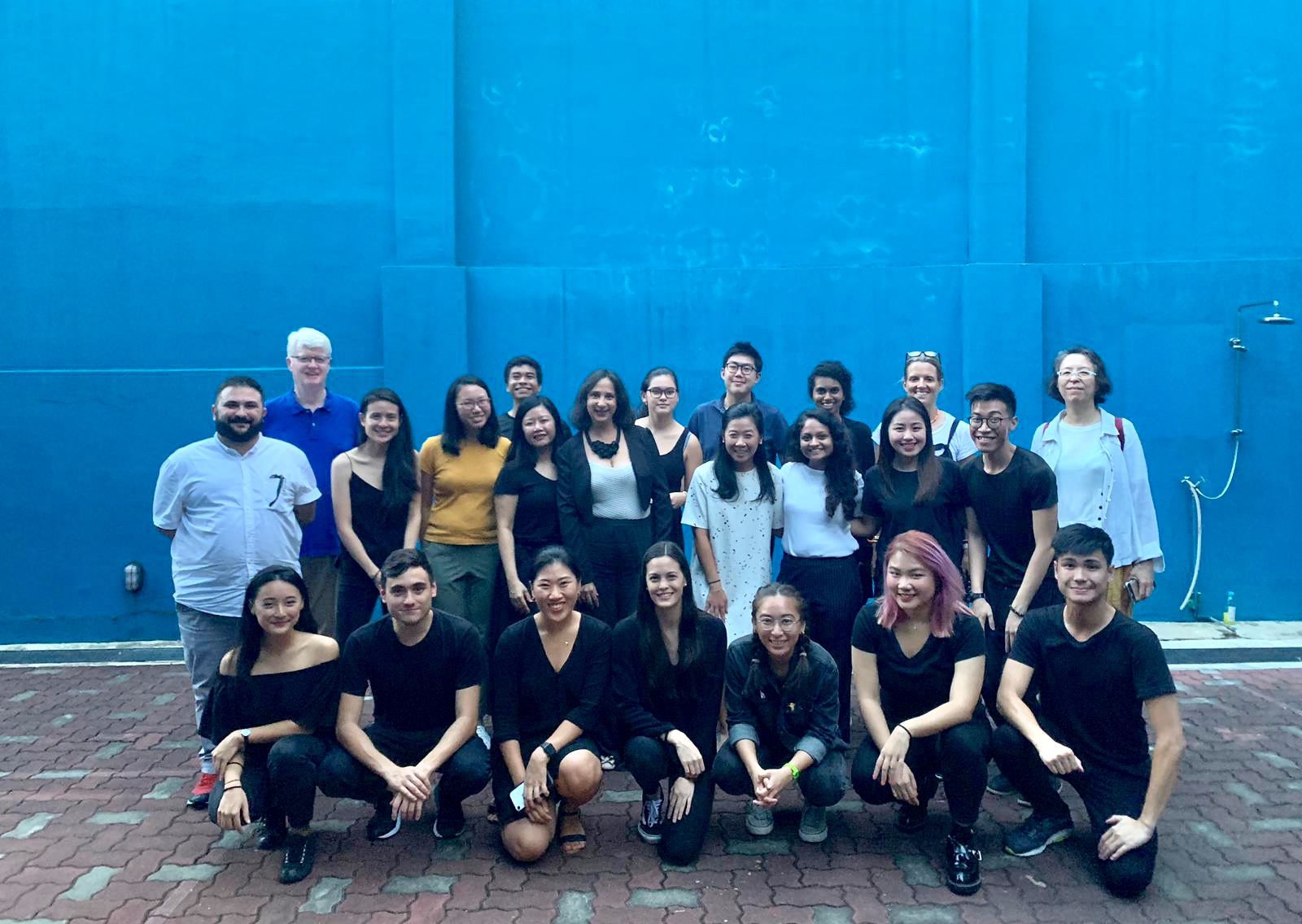
MA Creative Writing students with BA(Hons) Acting students at Centre 42
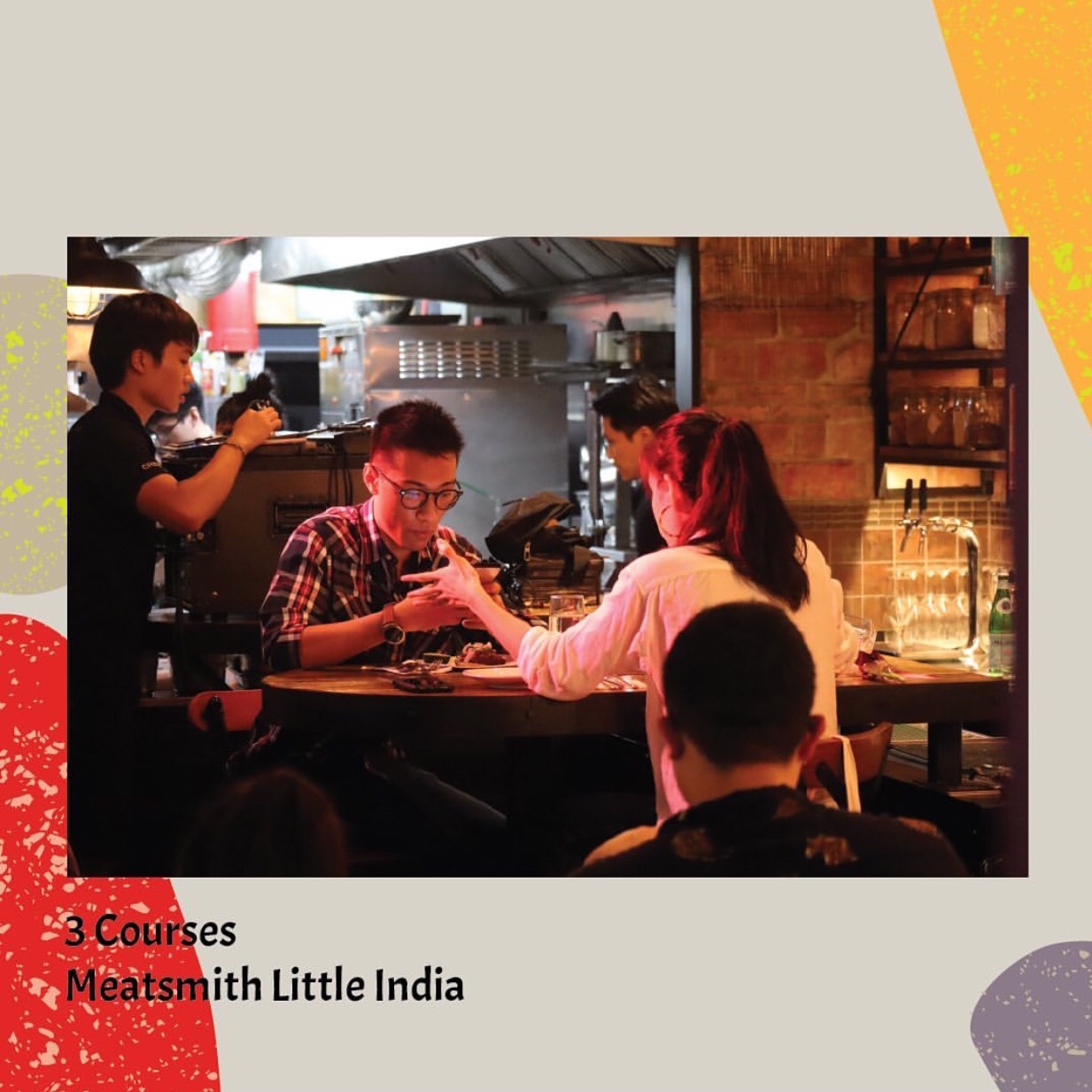
3 Courses, dinner theatre project at ARTWALK Little India 2019
In the MA programme, you have to take modules in creative non-fiction, fiction, poetry and drama. What were some of the challenges you encountered while exploring these different genres?
Being in an unfamiliar space can be daunting and frustrating, especially within the compressed time frame of a semester. For me, poetry was the most challenging. As the module focused mostly on lyric poetry, it took me some time to experiment with words, imagery and rhythm through trial and error. Thankfully, the critiques from my lecturer Dr Chris Mooney-Singh and peers helped me to find my voice. My poetry journey was a distillation process that taught me to use words selectively and add concentration and intensity to the language, which led me to learn a new approach to creating meaning.
As you shared with us earlier, from places of failure can often come unexpected turns and successes. Did you find that was the case with you and poetry?
Yes! In fact, the rigour of broad-based learning not only honed my adaptability as a writer to navigate multiple genres, but also exposed me to the ways in which I could synthesise writing techniques across genres to tell a story. Once you start to draw the connections between dialogue on stage and dialogue in prose, or how ekphrastic poetry can find its way into creative non-fiction where art is used to interrogate our life experiences, you realise there is something you can take away from each genre. You can weave bits and pieces together to determine your own craft. After all, language is constantly evolving and can take different shapes and forms.
The COVID-19 crisis saw theatre companies worldwide migrate to digital media to create ‘Zoom theatre’, which demands a combination of writing for stage and screen. Playwrights now have to negotiate the use of an entirely new screen space without compromising on the theatricality of a performance. Throughout all this, I felt reassured that I had gained some experience from the screenwriting module. Getting equipped with a diverse set of writing tools can present an exciting and rewarding opportunity for any writer who is interested in stepping out of their comfort zones and discovering contemporary ways of storytelling.
What projects are you working on after graduating from the MA?
You might have caught me in the recent International Storytelling Festival Singapore organised by The Storytelling Centre:
Video: The Storytelling Centre
Currently, I am part of a five-month playwriting mentorship programme called ‘Playwrights’ Cove’ conducted by Haresh Sharma from The Necessary Stage. It is surreal that my MA journey has come full circle with him. Haresh encourages us to have critical discussions about why we write, how the work can investigate social issues and what methodologies and theatrical devices can be used to supplement the content. The mentorship will culminate with a public reading of our scripts in December.
On top of that, two new plays are in the works. One of the plays I wrote for the Dramatic Writing module at LASALLE is being updated and turned into a playlet for Esplanade’s Kaala Utsavam. I’m also co-writing a courtroom audio play for the Singapore Writers’ Festival, together with local theatre practitioner Grace Kalaiselvi.
What advice would you give to someone who was considering enrolling in the MA Creative Writing programme?
I would strongly encourage you to give it a shot because you never know what doors it may open for you! As someone who started off struggling with poetry, I went on to share my poems at the George Town Literary Festival last year. Some of my friends read their works at the Singapore Writers’ Festival in 2019 while others published their prose and poetry in online as well as print journals. If you’re looking for opportunities to be a professional writer, the programme offers industry-recognised platforms to get your works out there and gives a boost of confidence for you to make things happen for yourself. The lecturers are also really dedicated and meticulous with their feedback and encouragement.
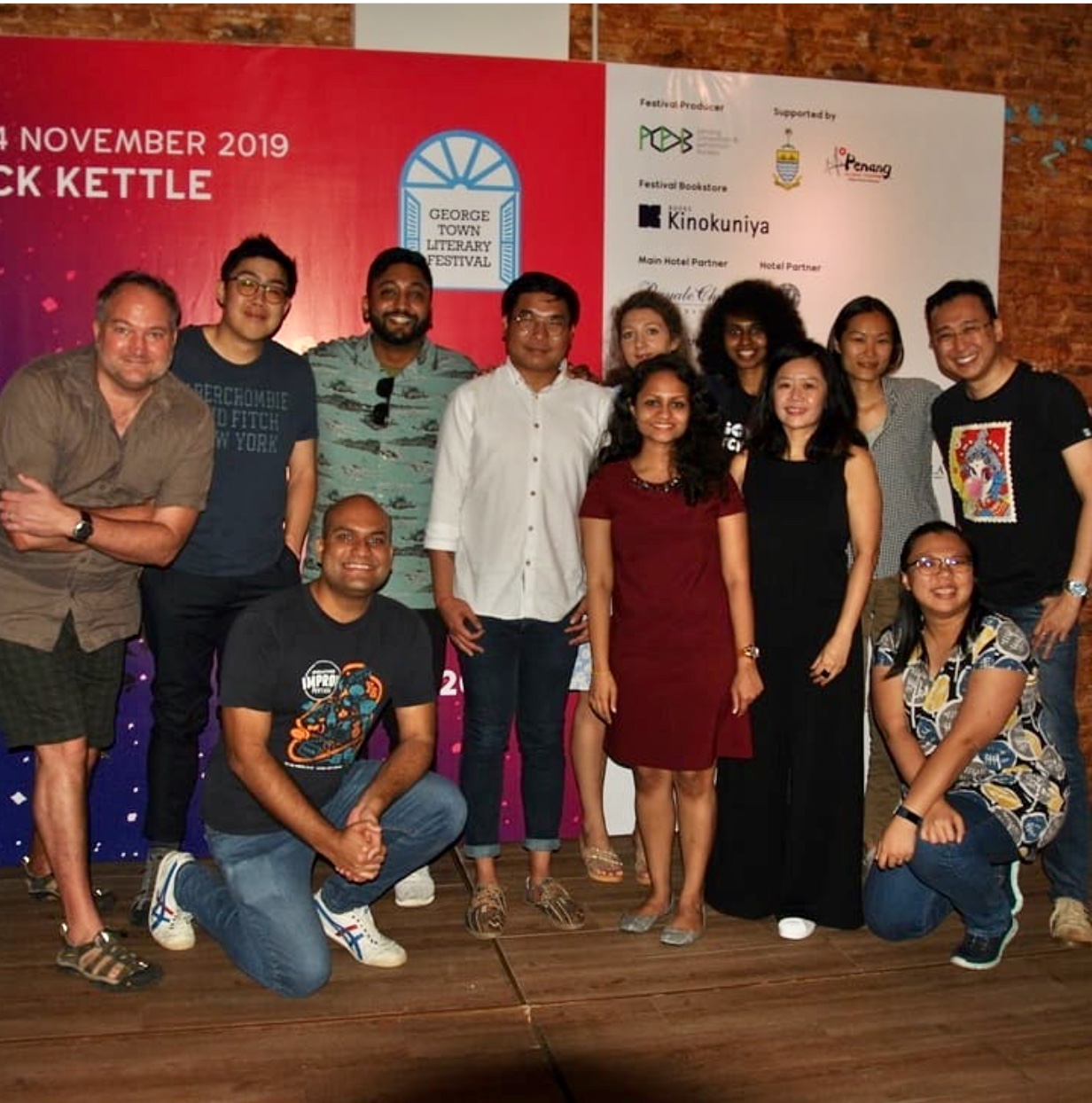
George Town Literary Festival 2019
With the pandemic and looming recession, now’s an opportune time for people to invest in education. I see it as a way of seeking shelter from the storm, to take advantage of the downtime to sharpen our skills. Writing is also therapeutic and offers an outlet for us to pause, reflect and make sense of what’s happening around us. Having a writers’ community in the form of your classmates also gets you out of your own head. You never know, perhaps this MA programme might pave the route to your healing and self-discovery.
Apply now for our postgraduate programmes.




